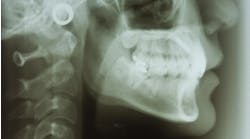Our Annual Practice Survey, sponsored by Dental Economics and Levin Group, has been completed, and the Levin Group Data Center is now analyzing the data gathered. The full report of the results will be published by Dental Economics soon, but we are able to share some interesting findings here.
Two of the most significant indicators about the state of the dental economy are the average length of dentists’ workweek, and when they expect to be able to retire.
For years, a “full dental work week” has been defined as 3.5 days. That was true of 74% of dentists surveyed for 2012 and 80% in 2013. The latest numbers, however, indicate that the length of the workweek may need to be redefined. While 90.2% of doctors now report working 3.5 days or more each week, nearly half of our respondents—49%—tell us that they are now working a full four days a week.
Dentists are also revising their retirement age expectations upward. From 2013 to 2014, the number of those who believe they will retire after the age of 61 increased from 76% to 88.3%.
Taken together, these metrics suggest that dentists recognize the challenges of the new dental economy and are working harder to meet them.
__________________________
GP Seminar Savings: Save $100 when you register 30 days in advance for Dr. Levin’s all-new seminar, “Set Your Practice On Fire!” in Las Vegas, December 11-12. Get details and sign up here.
__________________________
CATCH UP ON PAST DATA BITES
58% of practices don't use phone scripts
Do you have the necessary business skills?
Dentists anticipate postponing retirement
38% of dentists 'highly or extremely stressed'—analysis and solution from Levin
Why are only 27% of practices asking for referrals?
Practice collections climb to 94.3% in 2014
Continue the conversation. Comment below!







